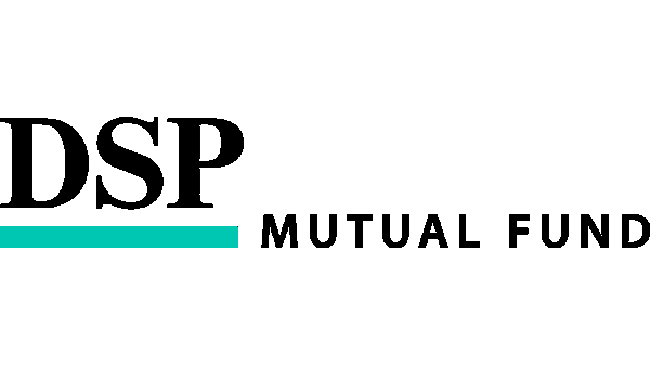
Jaipur, October, 2020.
Looking into the future and predicting market outcomes, especially in the midst of a pandemic, is challenging to say the least. In the current scenario, visibility into the future of businesses is hazy at best. DSP MF came up with an assessment concept “Vision 20/20” to envision the future of business. 20/20 in medical parlance refers to the sharpness of vision. The first 20 is what the person being tested sees 20 feet away from him/her and the second 20 is what a person with normal vision should be able to see from 20 feet away.
Re-purposing this “Vision 20/20” concept to investing, DSP assigns the first number (out of 20) to their investment team as analysts and fund managers and their level of visibility when assessing our portfolio companies. The second 20 represents the idealistic and impractical ‘perfect’ market participant.
DSP MF employed 3 lenses when evaluating the future of investee or potential investee businesses (and by extension, its funds that hold those businesses) bucketing it into Vision 15/20, 10/20 and 5/20. It does not have a Vision 20/20 lens as it believes we are in uncharted territory and unable to have 100% clarity regarding future trends.
Vision 15/20 – High visibility on business model, industry landscape and customer trends
Personal mobility will see a trend with people in mid-high income brackets would prefer to buy cars/2 wheeler instead of using services like Uber/Ola. The demand for second hand vehicles has picked up with a focus on low-budget, mass market vehicles.
Similarly, there is a shift to online buying with many shoppers experiencing it for the first time. Shopping apps and online healthcare and medicines have seen a huge spike in demand.
Affordable housing could see a pickup as the government is likely to focus on providing better living conditions to poor people. Work from Home is likely to continue in some way, shape or form. This could create disruption in rent seeking stories (REITs, Commercial Real Estate). The new work model also suggests an internet boom benefitting telecom players and could also translate into increased consumption of ready to eat packaged foods categories.
Export driven pharma companies are well positioned to leverage the ‘Self Reliant India’ theme. Hand Hygiene products (Hand sanitizer/ hand wash) have seen ~10x jump in penetration levels. Unavailability of social security, the high cost of healthcare and low penetration of protection policies in India may drive the demand for both medical and term-life insurance.
Vision 10/20 - Medium visibility on business model, industry landscape and customer trends
During these difficult times of pay cuts and job losses, we expect mass brands to outperform premium brands as customer switch to value conscious buying. Consumer staples witnessed heavy buying due to initial hoarding and the long term growth path seems unchanged.
Some apparel companies have started manufacturing masks. We are uncertain whether this trend is sustainable or whether is it likely to fade away in a post Covid-world. Going forward, we expect Facility Management Services to normalize in a post-Covid period. Limited-use Hygiene Products (given their limited use in daily life and premium positioning), other hygiene category (toothpaste, facewash, shampoo) trajectories do not show acceleration. Packaged Food Consumption (i.e. biscuits) have seen a spike with a biscuit maker recently reporting their best month in eight decades- however, we would not want to assume that this growth is likely to continue perpetually.
Vision 5/20 - Low visibility on business model, industry landscape and customer trend
People have stopped eating out, online deliveries were severely impacted and cloud kitchens had closed. The retail segment had also suffered, although there are some early signs of revival here. So both the categories- Shopping & Eating out will take some time to get back on track where regaining and winning customer trust will be crucial.
Multiplex Models are now seeing a disruption as movies are getting released on OTT Platforms. Regular passenger flights may take a while to normalize due to the enclosed spaces and proximity of passengers in an aircraft.
With states capping rates for both Covid and non-Covid beds, it could deter private investment in hospitals. State investment in health is a positive for the long run. In Banking space, banks are learning to deal with moratoriums and it will need to be seen what percentage of the assets get restructured.
What the findings imply
Significant portion of our portfolio weightage is distributed between the High and Low Visibility buckets as we are more focused on fundamental stock calls. We believe low debt with high cash flow generation works well over the long-term and becomes all the more important in times of crisis as we are witnessing today. Companies overburdened with high debt or poor cash flow generation may find it difficult to compete effectively in the current environment and may be forced to give away market share to competitors. We also believe an important driver of wealth creation is the ability of a company to invest capital efficiently and weprefer capital efficient business.
DSP MF also acknowledges that the environment is uncertain and quite fluid. Business such as retail and multiplexes seem to have lost flavour today but, can see a quick revival with a decisive cure for Covid. Hence viewing our portfolios from emerging trends and the aforementioned visibility buckets perspective are useful inputs. The changes in these times will change the behaviour of consumers and therefore we remain excited yet watchful of the future.